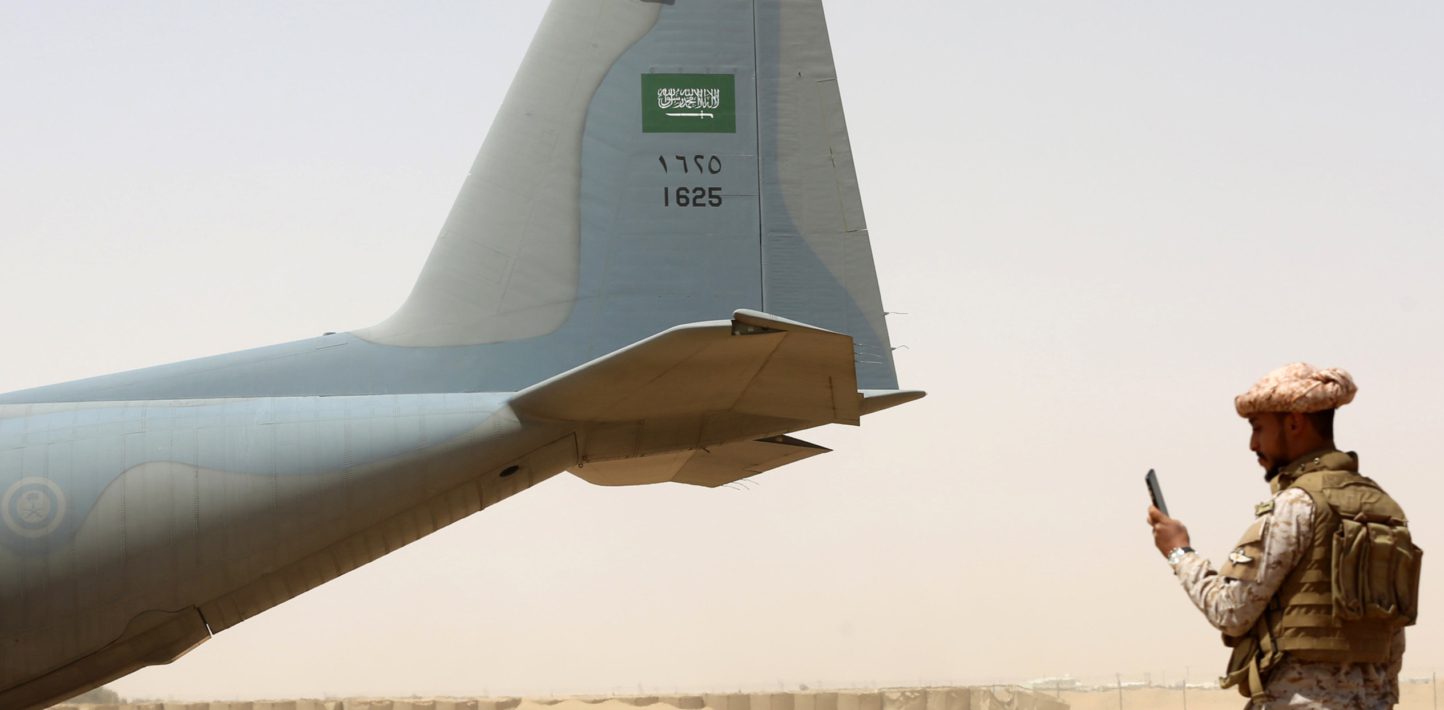Patrick Wilcken, Researcher on Arms Control at Amnesty International
This week one of the world’s biggest arms fairs gets underway in London. Around 1,000 arms companies will set up shop at DSEI (Defence and Security Equipment International), selling everything from killer drones to tanks and tear gas. Among the official guests are representatives from Saudi Arabia, UAE, Israel and Egypt.
Over the past few years pressure has been building on governments to rethink reckless arms deals. Several countries have partly or totally suspended arms sales to Saudi Arabia and the UAE over human rights violations in Yemen, and the UK is being pursued in the courts for its continued exports to these countries.
It’s often possible to trace weapons used in attacks on civilians to specific companies
But so far, arms companies have not been subject to the same level of scrutiny, even though it’s often possible to trace weapons used in attacks on civilians to specific companies. For example, the French company Renault Trucks (now Arquus) exported more than 200 armoured vehicles to Egyptian security forces throughout the bloodiest period of the country’s recent upheavals. Masses of video and photo evidence analyzed by Amnesty shows these vehicles being used by security forces to violently disperse protests and crush dissent.
In Yemen, Amnesty researchers analyzed weapon remnants from the scene of a 2017 airstrike by Saudi Arabia/UAE-led coalition forces in Sana’a in which 16 civilians were killed, and found they had been manufactured by US defence giant Raytheon. Another Amnesty investigation found that US company Lockheed Martin made the bomb used in an airstrike which killed three members of one family in their home in Ta’iz governorate in Yemen in January 2018.
These companies didn’t decide to drop those bombs. But that doesn’t mean they can wash their hands of responsibility
Of course, these companies did not make the decision to drop those bombs or deploy those tanks. But that doesn’t mean they can wash their hands of responsibility. Like all companies, corporates operating in the defence sector have a responsibility to respect human rights wherever they operate, independently of state regulatory frameworks. This means undertaking due diligence to assess and address human rights risks and abuses related to their business – including how clients like national armies and police forces use their weaponry.
Amnesty International recently contacted 22 arms companies and asked them how they manage the human rights risks associated with the misuse of their products. Not one of those companies was able to adequately explain how they meet their responsibilities under international standards like the UN Guiding Principles on Business and Human Rights (UNGPs). Most did not even seem to recognize that they had responsibilities in relation to human rights and seemed to think complying with state export and licensing laws was enough.
For example, the French company Thales stated that “once delivered to a customer, our company has no control at all over the use – or misuse – that could be made of our technologies.”
In response to questions about arms sales to Saudi Arabia, UK-based BAE Systems replied, “Our activities in Saudi Arabia are subject to UK government approval and oversight.”
When we asked Raytheon what steps it had taken to investigate and respond to the incident in Sana’a, the company said: “Due to legal constraints, customer relations issues… Raytheon does not provide information on our products, customers or operational issues.” It went on to say that military and security equipment is subject to a government review which includes “consideration of international human rights and international law.”
Other companies – Rolls-Royce, Lockheed Martin, Saab and Airbus, all of whom trade with the Saudi Arabia/UAE-led coalition – simply stressed that they are bound by government licensing decisions which take account of human rights risks.
This lack of corporate responsibility and accountability has gone on for too long
Fourteen companies did not reply to Amnesty’s requests for information, including Russian arms exporter Rosoboronexport, which has supplied military equipment to the Syrian armed forces, who stand accused of war crimes and crimes against humanity.
This lack of corporate responsibility and accountability has gone on for too long. Whatever the role of the state, companies make decisions at the highest level of the organisation to tender for these high-risk contracts, and must take responsibility for those decisions and their implications.
Failure to conduct proper due diligence could potentially expose arms companies to prosecution for complicity in war crimes
“corporate complicity” in international crimes continue to evolve and could in future apply to arms companies that continue supplying weapons in the knowledge that they may be used in violations of international law. This means that failure to conduct proper due diligence could potentially expose arms companies to prosecution for complicity in war crimes.
Every time DSEI comes to London, hundreds of protesters line the streets outside, outraged that the UK government is still rolling out the red carpet for states which use arms for serious human rights violations. This kind of activism is becoming more widespread; in May, for example, port workers across Europe blocked Saudi arms shipments from being loaded onto boats. As awareness grows of the role of the arms trade in serious human rights violations so does the public and legal backlash. Arms companies will not be able to hide in the shadows forever.


